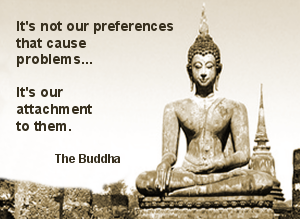
Myers Briggs theory is very popular. Millions of people every year discover their personality type, using the Myers-Briggs Type Indicator® or one of a wide range of alternative questionnaires. Often the argument goes that, if you can discover your preferences, you can play to your strengths and develop your individuality.
However, the creator of the theory (C.G. Jung) argued that knowing or using your preferences can lead you in one of two directions – one being cultured, the other barbaric. His view receives support from a perhaps surprising source – the Buddha.


